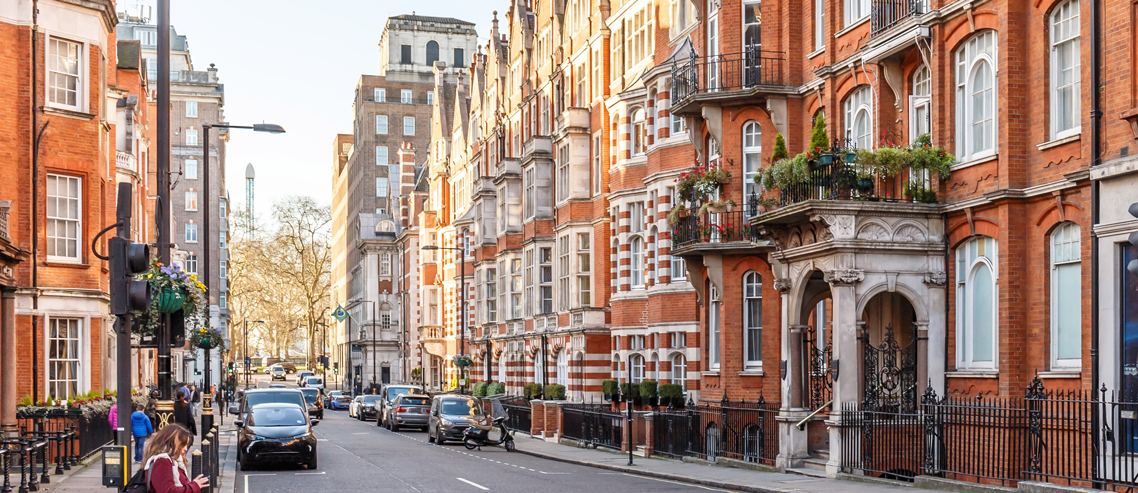UK property investment guide for overseas investors

UK property investment for overseas investors is not that much different from how UK residents would purchase a property. There are, however, subtle differences that non-UK residents should be aware of before making such an important decision as it is to invest in UK property. Today, we will answer the most common questions overseas investors have when it comes to the UK property market and investment opportunities.
Can overseas investor buy a property in the UK?
Yes, a non-UK resident can buy a property in the UK. Foreign investors buying UK real estate has been popular for a long time, and there are no particular restrictions to buy a property in the UK by non-UK residents. However, there will be an additional 2% stamp duty for non-resident buyers as of April 1st 2021.
Can foreign investors buy-to-let in the UK?
As a foreign investor, you can buy any type of real estate in the UK, including a buy-to-let property. Some of the popular buy-to-let hotspots in the UK are Birmingham and Manchester, as these places have projected high-rental yields, whilst the property prices are still “affordable” compared to some areas in London.
The devaluation of the GBP over the last few years and the current Stamp Duty Holiday extension until the end of June 2021 also makes now an excellent time to purchase a buy-to-let property in the UK.
Can a non-UK resident get a UK mortgage?
Even if you’re not a UK citizen, it’s still possible for you to get a mortgage. Banks or lending institutions might ask non-UK resident property investors for a higher deposit rate, up to 35%-40% of the property price. You should also account for the mortgage broker fee and/or arrangement or completion fee. Talk to a specialist international mortgage broker to see your options.
Understanding the UK property buying process for overseas investors
Many foreign investors use the help of real estate agents and mortgage brokers, who can help them match the perfect investment opportunity to their investment goals. Companies such as Lifestyle Property International understand and can help through the whole property buying process.
UK homeownership types
There are two fundamentally different forms of legal property ownership in the UK: freehold and leasehold.
As you can see in many UK property adverts, they often refer to “250 years leasehold” or “999 years leasehold”. A leasehold means that you have a lease from the landlord or freeholder to use the property or land for many years. Leaseholders typically pay annual ground rent to the freeholder, which is usually 0.1% of the property value.
When you buy apartments or flats in the UK, you are almost always a leaseholder. This is done for technical/legal reasons, as there is usually one person, company or even the Crown owning the land while you own the property in the residential building. When the leasehold is about to finish, you or your descendants can extend it.
Typical UK property buying process for overseas investors
The process of buying a house in the UK can take approximately two to three months. It starts with choosing a UK investment property, ideally in a location with good rental yields and capital appreciation prospects, to ensure your investment will bring you good returns in the future. Once you have an eye on your perfect property, it’s time to establish the property financing options to speed up the rest of the buying process.
What are the typical next steps when buying a property in the UK?
Reservation & Deposit
Complete the reservation form for the unit and pay the deposit to secure the reservation within 7 days from the reservation date. The deposit is usually anywhere between 500 GBP to 5,000 GBP.
Due Diligence
In the UK, due diligence is carried out before you sign a contract with the developer. The due diligence process is carried out by both parties. At this stage, you need to engage a solicitor who will represent you throughout the property buying process. Your solicitor will check with the local authorities, and you can also have a property valuation survey to see if any issues may affect the property’s value. This is always required if you are seeking finance and an essential step as mortgage lenders might not issue you a loan or reduce the loan offered if the property value in the survey is lower than the property purchase price.
Exchange of contracts
The solicitor will work with developers to prepare the contracts. The contract should include all key details such as price and completion date as well as any conditions for sale. Please note that in England, the offer isn’t legally binding until contracts are exchanged, you can still exit the buying process before signing the contract, usually losing only your reservation deposit.
Post sale
After the contract is signed, you will receive keys (if the property is finished), and this is when you pay for your property- either with your own financing or by securing a mortgage. This is also when you pay your mortgage fees and solicitor’s fees if not paid at Exchange. The solicitor in the post-sale period will register the sale with the Land Registry, and you will also pay any Stamp Duty due at completion.
However, solicitors are not tax advisers, and since Stamp Duty can be described as a self-assessment tax, there is a chance you may have overpaid it. You can always check the Stamp Duty refund services and see if you are eligible for a refund.
UK property tax for overseas investors
For overseas owners of UK property, the taxes and charges might seem complicated. Many of the taxes affect non-UK residents and foreign-domiciled UK residents, such as expats living abroad. Typical UK property taxes for overseas investors include:
Income Tax on renting the property
UK non-residents and non-domiciled UK citizens need to register with HMRC as non-resident landlords if they receive their gross income from renting their UK property. You still have to pay income tax, and the UK has different tax rates, depending on income in the tax year and your personal allowance, if eligible. The personal tax allowance in the UK in 2019/2020 was £12,500. After that, if you earn from £12,501 to £50,000, your income will be taxed at a 20% rate.
Income tax allowances
You get a personal allowance on your first £1,000 of income from property you rent in a tax year.
You may also get a tax-free personal allowance if you reside in a country that is included in the double-taxation agreement. It is also possible to claim various expenses to reduce the income tax, for example, management fees and service charges.
Capital gains tax
You must report and pay Capital Gains Tax if you decide to sell your UK property later. Capital gains tax is a self-assessment tax, and you need to fill in the particular form on the HRMC website within 30 days of the sale to avoid penalties.
Do foreigners pay stamp duty in the UK?
Yes, non-UK property investors have to pay Stamp Duty Land Tax in the UK. Starting April 1st, 2021, all non-UK resident investors in UK residential property will need to pay a 2% stamp duty surcharge on top of the existing stamp duty rates. Moreover, first time home buyers in the UK, including overseas investors, can qualify for a first-time buyer tax relief, but only if you’re purchasing a property that will be your primary residence.
Will buying a house in the UK give you residency?
Purchasing a residential property in the UK will not give you residency in the UK. You can obtain residency via the usual route by living and working in the UK for five years or enter other investor visa programs, such as Tier 1 visa, to expedite the residency process. If you are interested in a UK residency, Lifestyle Property International has partnered with an international immigration company that advises citizens from around the world on their immigration matters. Click here to fill in a short visa service form to find out more.









